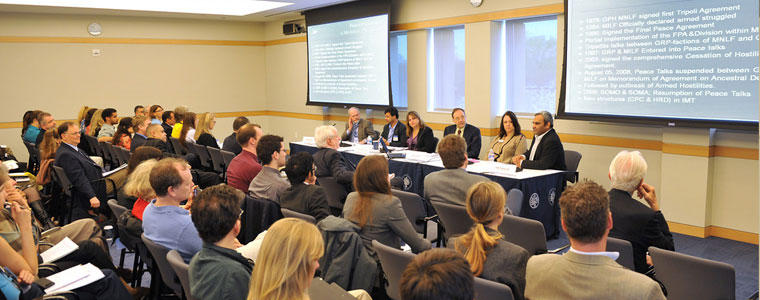Unarmed Civilian Peacekeeping: An Emerging Approach to Civilian Protection and Violence Prevention
Nonviolent Peaceforce (NP) and Peace Brigades International (PBI), two of the leaders in unarmed civilian protection, will present how peacekeeping works without guns, what lessons are being learned, and how this practice can now be brought to scale.

From South Sudan to Sri Lanka, Guatemala to Nepal, specially trained, unarmed civilians are protecting civilians under threat and preventing violence from escalating in areas of violent conflict. Working on the basis of strict nonpartisanship and at the invitation of local civil society, these peacekeepers apply field-tested strategies that create space for local actors to transform conflicts, protect human rights defenders and others made vulnerable by the conflict, as well as supporting local violence prevention mechanisms.
They bring on-the-ground realities of violent conflicts to national, regional and international attention. Their presence provides a bridge between peacekeeping and peacebuilding.
Nonviolent Peaceforce (NP) and Peace Brigades International (PBI), two of the leaders in unarmed civilian protection,presented how peacekeeping works without guns, what lessons are being learned, and how this practice can now be brought to scale.
This event featureed the following speakers:
- Jit Man Basnet
Lawyers’ Forum for Human Rights, Nepal - Katherine Hughes-Fraitekh
Executive Director, Peace Brigades International-USA - Atif Hameed
Nonviolence Peaceforce, Philippines - Tiffany Easthom
Nonviolence Peaceforce, Republic of South Sudan - Tim Wallis
Executive Director, Nonviolent Peaceforce - David Smock, Moderator
United States Institute of Peace



